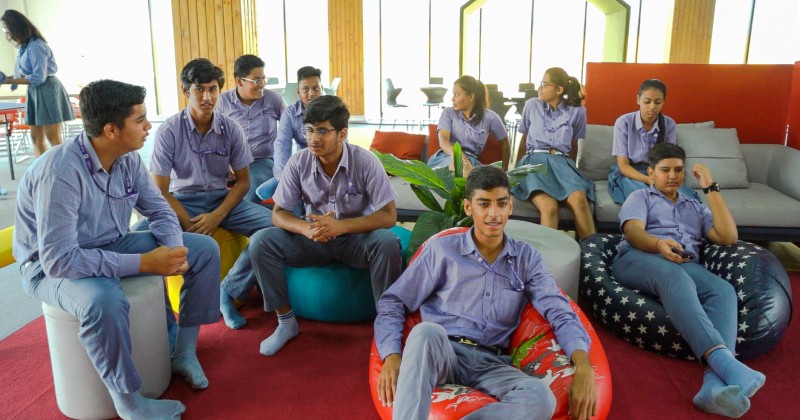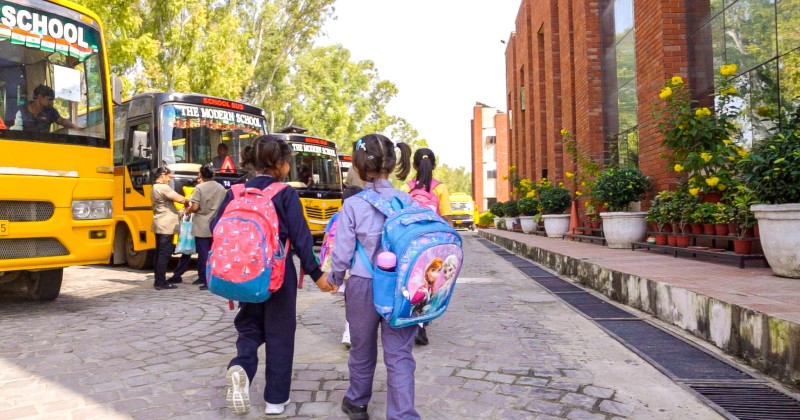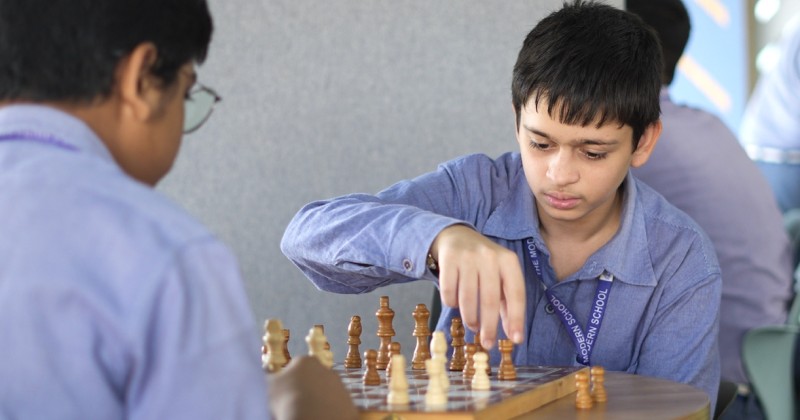
Modern School ECNCR's embrace of contextual and integrated learning transcends the limitations of traditional education. By dismantling the mental silos created by compartmentalised subjects, the school not only prepares students for the complexities of the modern world but also instils in them a passion for lifelong learning. In doing so, Modern School ECNCR stands as a beacon of educational innovation, nurturing not just academically proficient individuals but well-rounded, adaptable thinkers ready to tackle the challenges of an interconnected and rapidly evolving global landscape. In this dynamic educational environment, students are not merely recipients of isolated pieces of information; they are active participants in constructing a holistic understanding of the world. Whether engaging in hands-on projects that require the application of mathematical principles to solve real-world problems or exploring the historical context of literary works, students are constantly encouraged to see the interconnectedness of knowledge and to appreciate the relevance of their learning in a broader context.
Contextual and integrated learning is a pedagogical approach that transcends the conventional compartmentalization of subjects, fostering a dynamic environment where students can connect the dots between different areas of knowledge. At Modern School ECNCR, this approach is seamlessly woven into the fabric of the curriculum, encouraging students to explore the intersections between subjects and apply their learning in real-world scenarios. Moreover, the school's commitment to contextual and integrated learning extends beyond the classroom. Field trips, guest lectures, and partnerships with industry experts provide students with real-world exposure, allowing them to witness firsthand the practical applications of their academic pursuits. This experiential learning approach not only solidifies theoretical knowledge but also instils a sense of purpose and direction in students as they envision how their education can contribute to addressing societal challenges.


In a traditional setting, mathematics is often taught in isolation, devoid of real-world applications. However, at Modern School ECNCR, the mathematics curriculum is intertwined with architecture, allowing students to see the practical implications of mathematical concepts. Students engage in projects that require them to design and build scale models of structures, applying mathematical principles such as geometry and trigonometry. This not only makes learning math more engaging but also demonstrates its relevance in fields beyond the classroom.
Instead of treating literature and history as separate entities, Modern School ECNCR integrates these subjects to provide students with a richer understanding of cultural contexts. For instance, while studying a historical period, students delve into literature from that era, exploring how societal changes are reflected in literary works. This approach not only deepens their appreciation for literature but also enhances their historical insight by connecting events with the sentiments and perspectives of the time.
The interconnectedness of the natural world is a central theme in the science curriculum. Students learn biology, chemistry, and physics through the lens of environmental studies, understanding the delicate balance that sustains ecosystems. This holistic approach enables them to appreciate the broader implications of scientific discoveries and innovations on the environment, fostering a sense of responsibility for the planet. Embracing the digital age, the school integrates language arts with technology. Students not only learn how to write effectively but also acquire digital communication skills. Through collaborative projects, they create multimedia presentations, blogs, and podcasts, honing their ability to convey ideas in diverse formats. This synthesis of language arts and technology prepares students for the communication demands of the 21st century.
By connecting concepts across disciplines, contextual and integrated learning stimulates critical thinking. Students learn to analyse situations from multiple perspectives, developing a more comprehensive understanding of complex issues. This skill is invaluable in preparing students for a world where problem-solving requires a multifaceted approach. Traditional learning often leaves students questioning the practical relevance of their education. Contextual and integrated learning bridges this gap by demonstrating how knowledge can be applied in real-world scenarios. Students not only grasp theoretical concepts but also see their application in solving authentic problems, preparing them for success beyond the classroom. Interdisciplinary projects and real-world applications make learning more engaging for students. The dynamic and interactive nature of contextual and integrated learning captures their interest and fosters a genuine curiosity for knowledge. As a result, students are more likely to actively participate in their education, paving the way for a lifelong love of learning. In an era where careers often demand a multidisciplinary skill set, contextual and integrated learning positions students for success in diverse fields. The ability to navigate and integrate knowledge from different domains is a valuable asset in professions that require adaptability and a broad understanding of complex issues.
In conclusion, Modern School ECNCR's commitment to contextual and integrated learning is transforming education into a dynamic and interconnected experience. By breaking down the walls between subjects, students are not only equipped with a broader understanding of the world but are also better prepared for the challenges of the future. As the educational landscape continues to evolve, embracing innovative approaches like contextual and integrated learning is crucial in nurturing well-rounded individuals ready to make meaningful contributions to society.